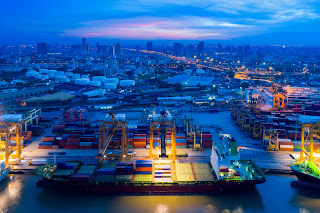Ports of the Future: Smart Technologies for Enhanced Efficiency and Security
Ports are vital hubs for global trade, connecting businesses and consumers around the world. However, the shipping industry faces significant challenges, such as growing demand, increasing competition, and rising concerns about security and environmental impact. To address these issues, ports are increasingly turning to smart technologies to enhance efficiency and security.
One of the key areas of focus for smart ports is automation. By automating tasks such as cargo handling and vessel navigation, ports can increase efficiency and reduce costs. For example, automated cranes can load and unload containers faster and with greater precision than human operators. Similarly, autonomous vessels can optimize routes and reduce fuel consumption.
Another area of innovation is data analytics. Smart ports are using sensors and other technologies to gather data on everything from weather conditions to cargo volumes. By analyzing this data, ports can optimize operations, anticipate demand, and identify opportunities for improvement. For example, data analysis can help ports to optimize vessel schedules, reduce congestion, and improve safety.
Security is also a major concern for ports, given the potential for cargo theft, smuggling, and terrorism. To address these risks, ports are investing in technologies such as biometric scanners, facial recognition systems, and CCTV cameras. These technologies can help to identify potential threats and prevent unauthorized access to restricted areas.
Finally, environmental sustainability is a growing priority for the shipping industry, given the impact of shipping emissions on air and water quality. To reduce emissions and improve sustainability, ports are turning to green technologies such as electric cranes and zero-emission vessels. Additionally, ports are working to reduce waste and improve energy efficiency through initiatives such as waste recycling and renewable energy generation.
In conclusion, smart technologies are transforming the shipping industry, enabling ports to increase efficiency, improve security, and reduce environmental impact. As the industry continues to evolve, it is likely that we will see even more innovative solutions to the challenges facing ports and the wider shipping ecosystem.

.png)

.png)
Post a Comment for "Ports of the Future: Smart Technologies for Enhanced Efficiency and Security"